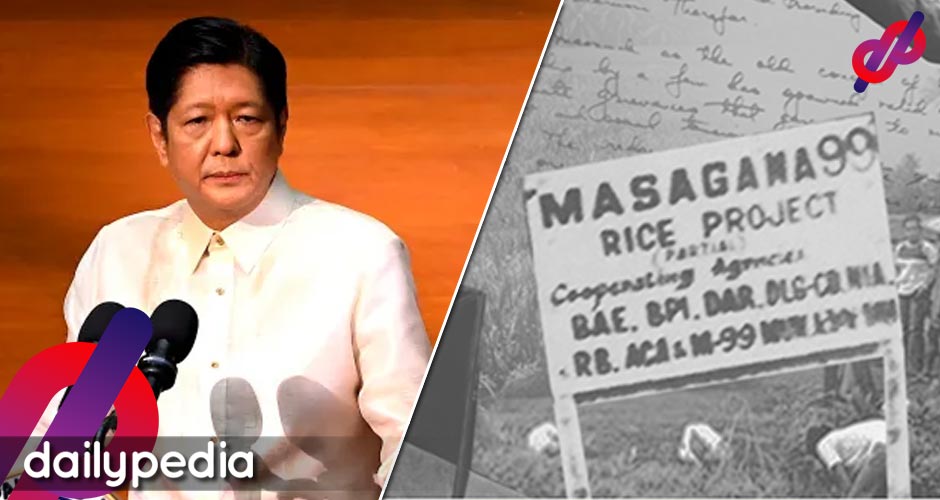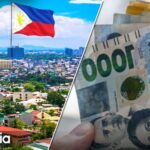President Ferdinand Marcos Jr. has endorsed a revised rice production program known as “Masagana 99,” which was introduced by his late father in 1973.

During a meeting with rice industry stakeholders on May 31, the President stated that the Masagana Rice Industry Development Program aims to achieve 97.5 percent self-sufficiency in rice production within five years.
“I don’t think it has to be 100 percent but I think 97.5 is a good enough number,” Marcos said during a Rice Industry Convergence Meeting in Quezon City.
“You don’t have to really go to 100 percent because the 3 percent are other niche products, organic ones, special grains, Japanese rice, things like that,” he said.
“At 97 percent, we can say that we can feed all our countrymen with enough rice and supplies,” Marcos added.
According to Press Secretary Cheloy Velicaria-Garafil, the President announced his approval of the program. This seems to have been influenced by Masagana 99, implemented in 1973 when the rice supply was scarce.
This program will work in tandem with an aggressive land reform initiative. It will include the implementation of new technologies generated by the International Rice Research Institute, which was established ten years prior.
However, the program will also include the application of chemical fertilizers and pesticides that have since been acknowledged as dangerous to health.
In 1976, the government claimed farmers produced abundant harvests not seen in generations. However, this assertion is still challenged today. Unfortunately, the program didn’t receive continued support, resulting in inexperienced farmers defaulting on their loans.
As a result, they had to sell the farmland granted by the government, and this led to numerous bank failures.
During a Senate hearing in 2020, former Agriculture Secretary Carlos Dominguez III, who served as Finance Secretary from 2016 to 2022, stated that he resolved the issue of 800 rural banks declaring bankruptcy because of delinquent loans.
Netizens then discussed Dominguez’s claims.
https://twitter.com/Andre07132000/status/1664493716244164613?s=20
Resibo https://t.co/sii6sNOLTu
— dentorred (@dentorred) June 3, 2023
The truth on Masagana 99. A flop. https://t.co/BRzANOiCzC
— #BiasedForTruth (@williamperez973) June 2, 2023
Please!!!!!! https://t.co/CIWGpVL96y
— Eli (@el_chapotle) June 2, 2023
The cut and paste President. https://t.co/0FkLOJBzIG
— AkoSiSakay (@martilyonithor) June 2, 2023
https://twitter.com/KiesynW/status/1664521257717739523?s=20
However, it was his government’s agricultural importation policy that caused crop shortages and ruined thousands of farmers all over the country. This included rice, corn, hogs, chickens, and sugar farmers.
Former Agriculture Secretary Emmanuel Piñol, who opposed importation, was replaced. This policy directly resulted in crop shortages, whether real or perceived.


